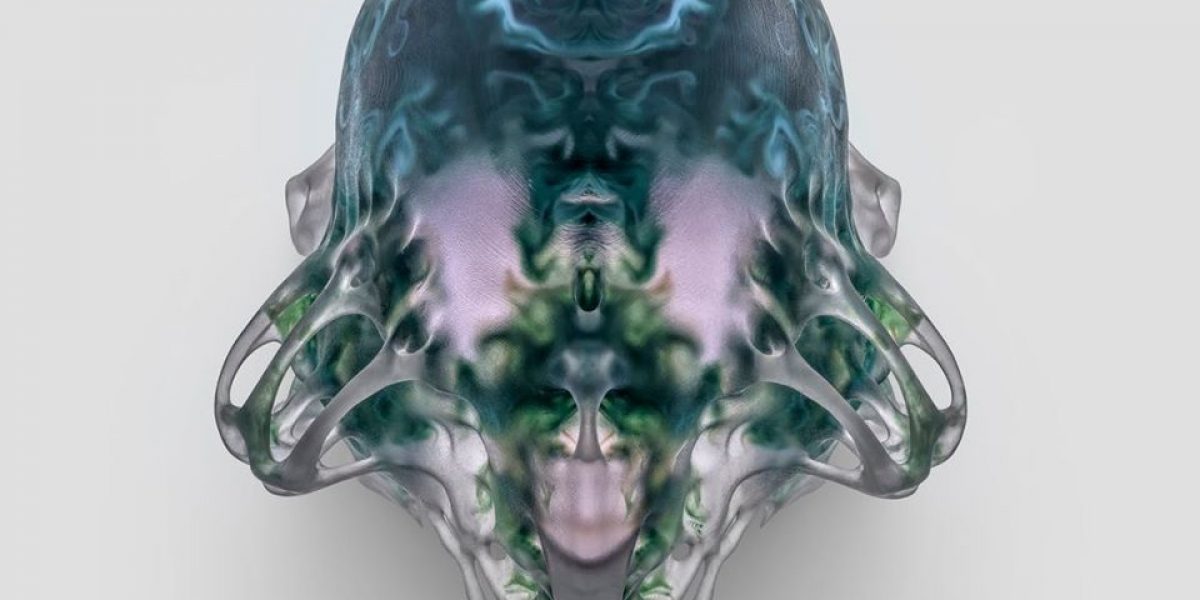The ‘Facial Weaponization Suite’ by the American activist and artist Zach Blas is a protest against biometric facial recognition in security cameras. He circumvents this technology, while at the same time exposing the inequalities perpetuated by surveillance of this kind.
‘Facial Weaponization Suite’ protests against biometric facial recognition–and the inequalities these technologies propagate–by making “collective masks” in workshops that are modeled from the aggregated facial data of participants, resulting in amorphous masks that cannot be detected as human faces by biometric facial recognition technologies. The masks are used for public interventions and performances.
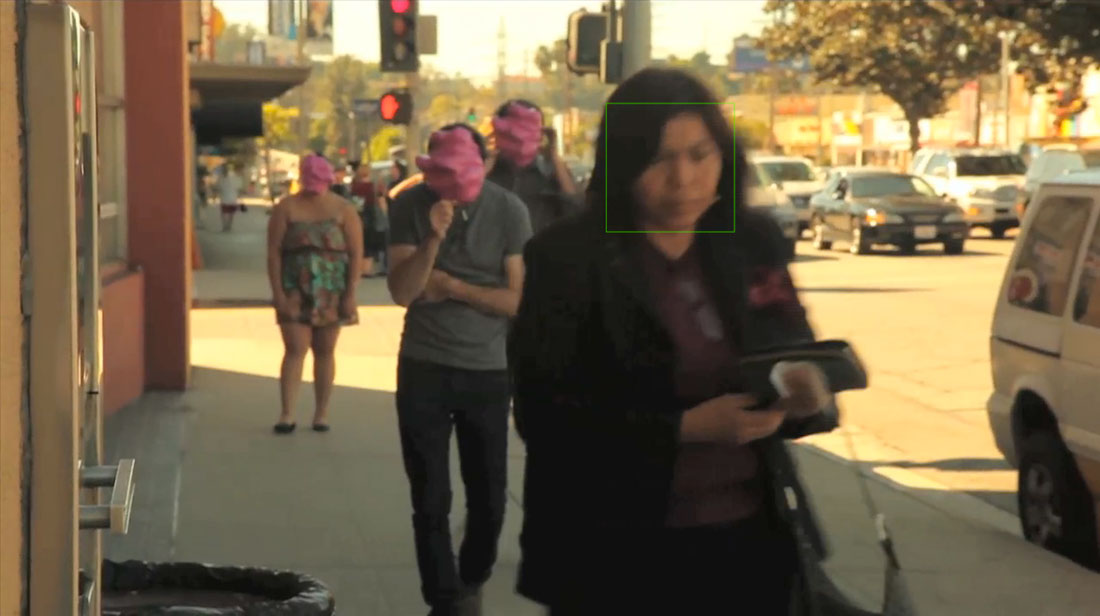
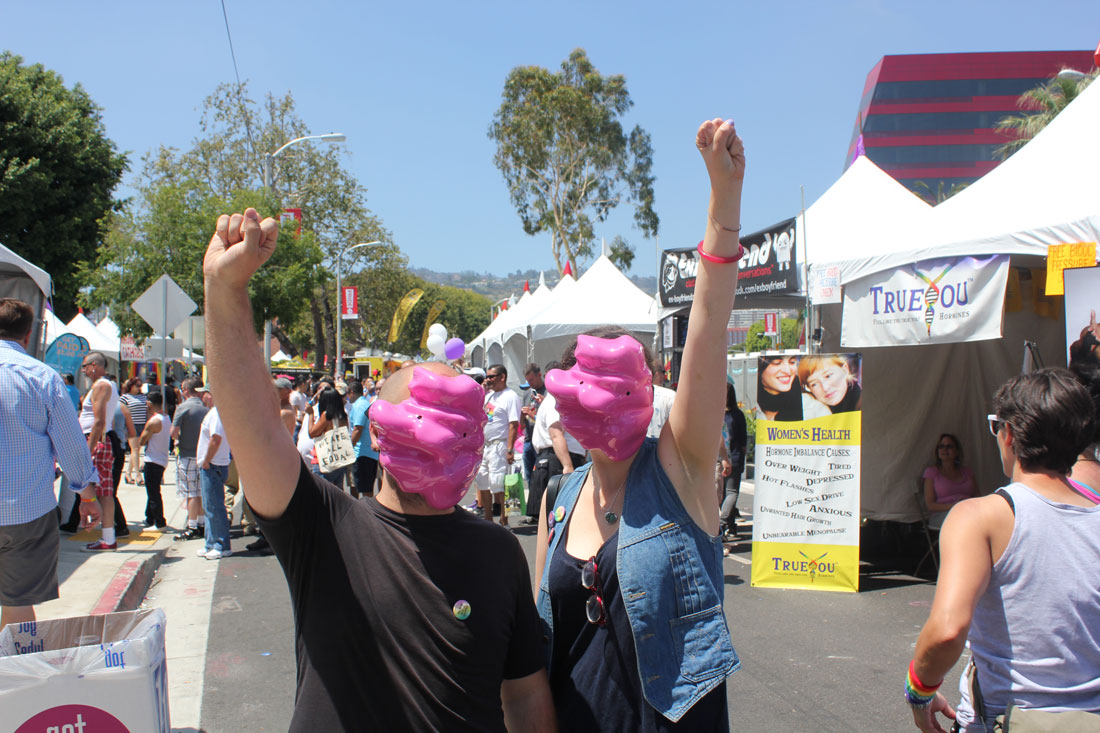
One mask, the Fag Face Mask, generated from the biometric facial data of many queer men’s faces, is a response to scientific studies that link determining sexual orientation through rapid facial recognition techniques.
Fag Face Scanning Station, reclaim:pride with the ONE Archives and RECAPS Magazine, Christopher Street West Pride Festival, West Hollywood, CA, photo by David Evans Frantz (2013)
Another mask explores a tripartite conception of blackness: the inability of biometric technologies to detect dark skin as racist, the favoring of black in militant aesthetics, and black as that which informatically obfuscates.
Militancy, Vulnerability, Obfuscation, tableau vivant, Performative Nanorobotics Lab, University of California, San Diego, photo by Tanner Cook (2013)
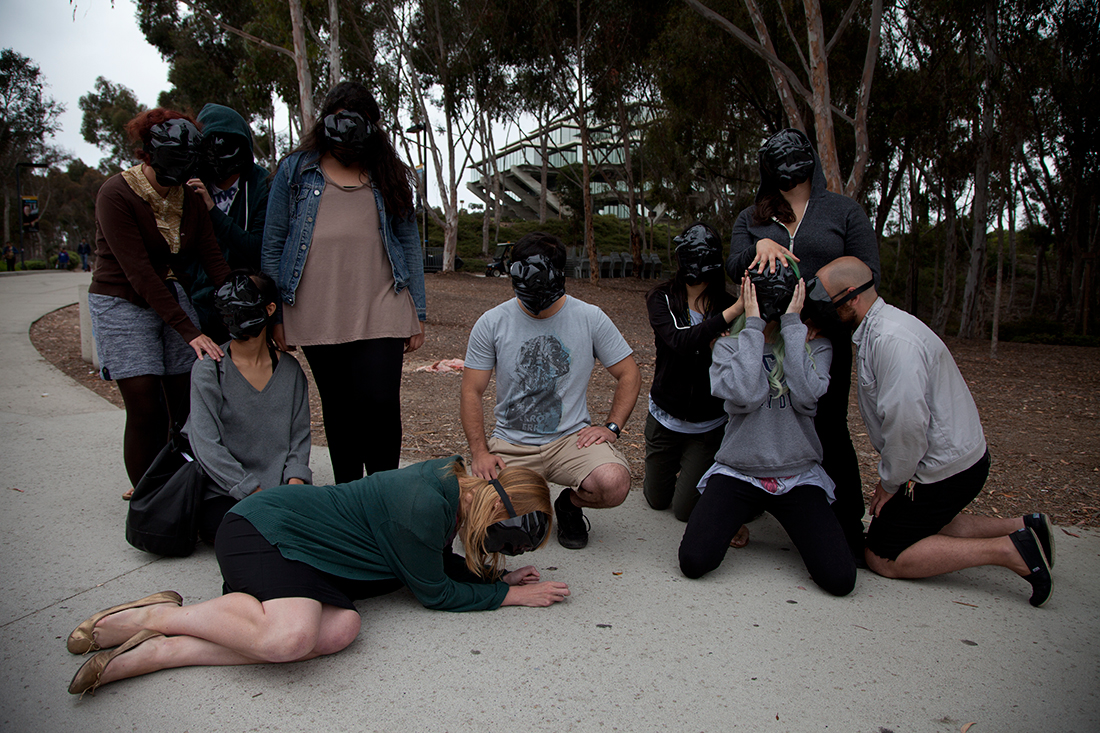
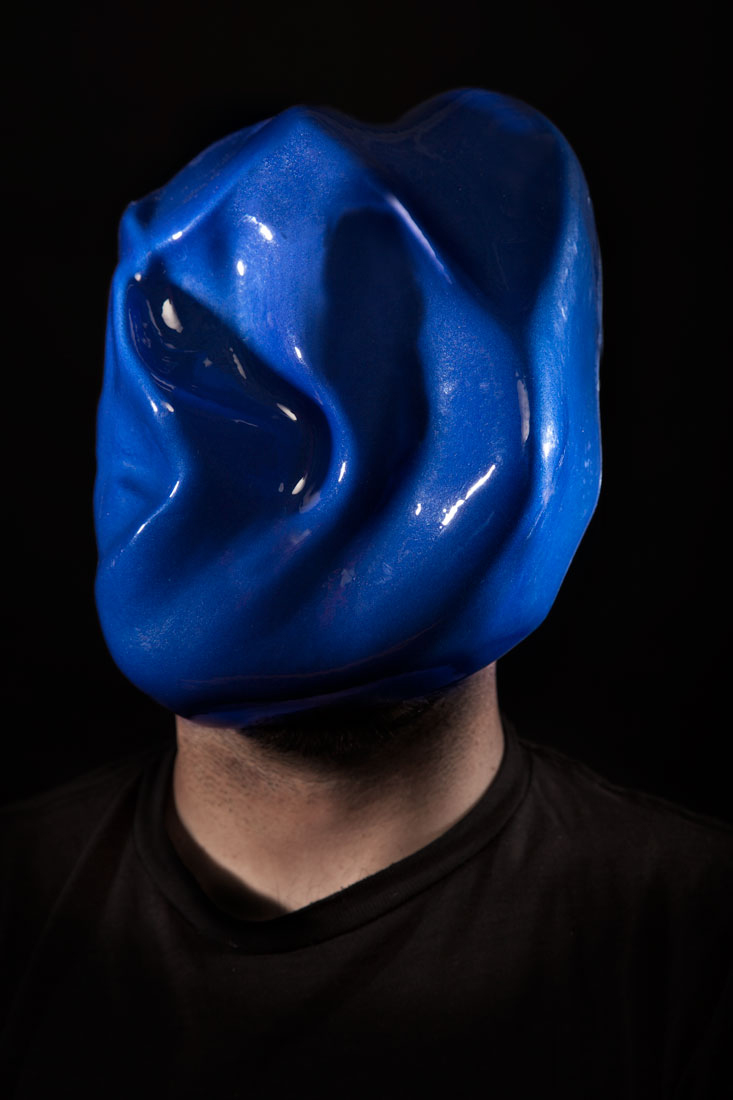
A third mask engages feminism’s relations to concealment and imperceptibility, taking veil legislation in France as a troubling site that oppressively forces visibility.
Mask – November 20, 2013, New York, NY
A fourth mask considers biometrics’ deployment as a security technology at the Mexico-US border and the nationalist violence it instigates. These masks intersect with social movements’ use of masking as an opaque tool of collective transformation that refuses dominant forms of political representation.
Procession of Biometric Sorrows, public action, Mexico City, Mexico, photo by Orestes Montero Cruz (2014)
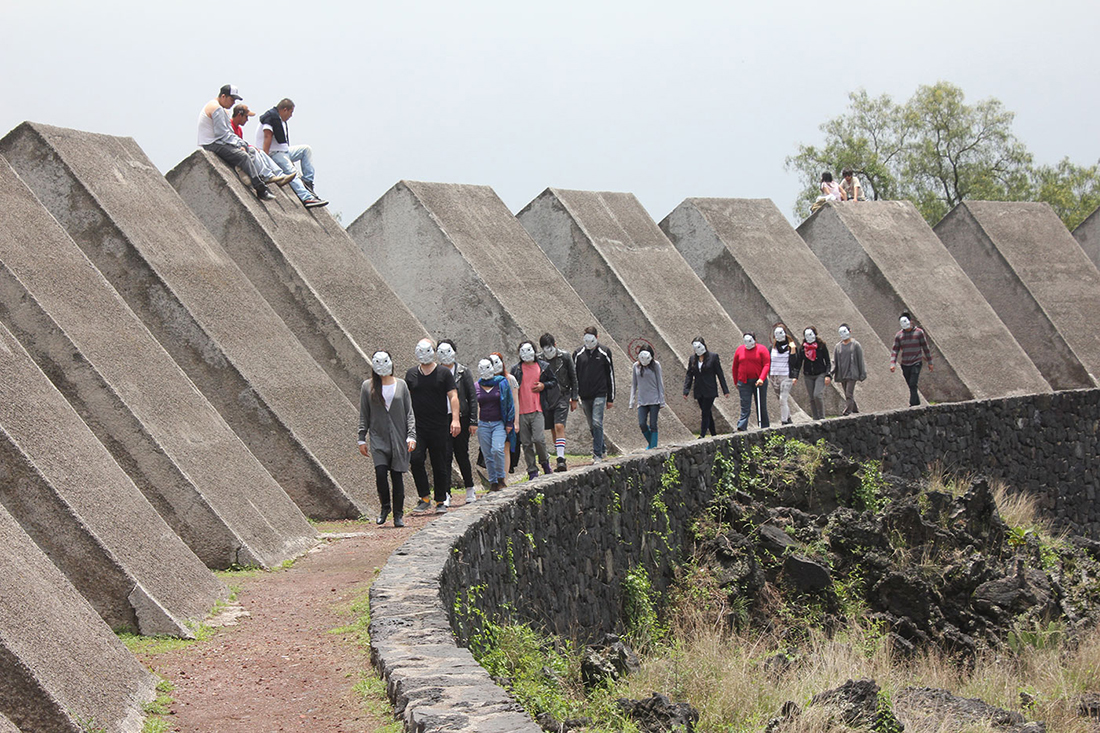
Credits
All text and images via Zach Blas
- Performers and Participants: Kalvin Henely, Andrew Hibbard, Michelle Lee, Scott Kepford, Martabel Wasserman, David Evans Frantz, Christina Aushana, Ahmad Halis, Dorothy Lee, Mona Liu, Patrick Shin, Allison Spence, Oona Tikkaoja, Tahiez Toro, Dominic Bradley, Katrina De Wees, Anaze Izquierdo, Sara Lyons, Kirya Traber, Omar Aguilar, Mariana Arenas, Andrea Bravo, Helena Chávez, Rosa Almendra González, Claudia Hevia, Natalia Millán, Edalid Mendoza Orestes Montero, Daniela Negrete, Daniel Rodríguez Perez, Martin Rivera, Maria Cruz Rodríguez, and L. Salazar
- 3D Modeling: Scott Kepford, The Great Nordic Sword Fights, Sergio Del Castillo Tello, Danilo Gasques Rodrigues, and Fernando Nos
- Fabrication: Machine Histories
- Photography: Christopher O’Leary, Tanner Cook, David Evans Frantz, Dominic Paul Miller, Christine Butler, Orestes Montero Cruz, and Oliver Santana
- Supported by Medialab Prado; b.a.n.g. lab, Performative Nanorobotics Lab, California Institute for Telecommunications and Information Technology, Visual Arts, University of California, San Diego; Eyebeam; and Museo Universitario Arte Contemporáneo
